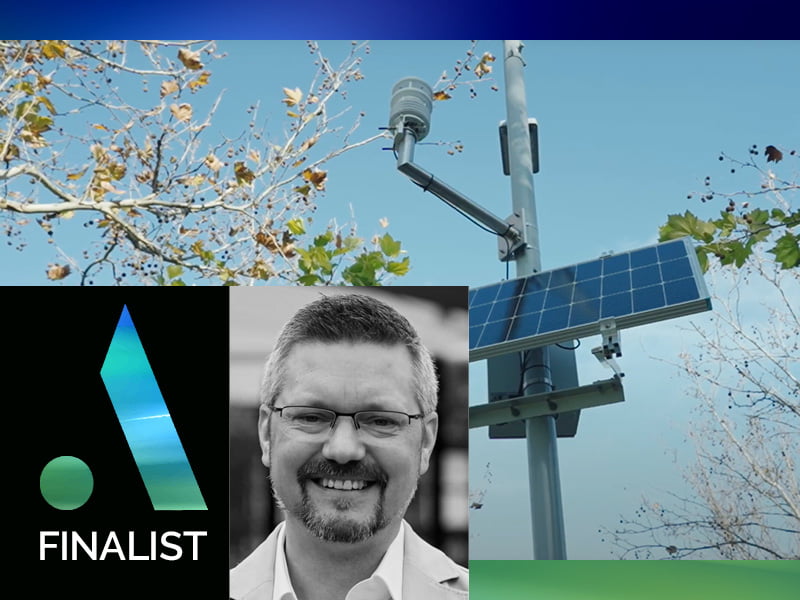It may sound like something from a science fiction movie, but the use of Internet of Things and artificial intelligence to effectively air condition city parks is now a reality.
Smart Irrigation Management for Parks and Cool Towns (SIMPaCT) uses a range of proprietary irrigation systems with IoT technology, created as a collaboration between 11 entities, including Western Sydney University, the University of Technology Sydney and NSW government partners.
Its technology facilitates effective and efficient water management in order to maximise air cooling and minimise water use, encouraging the process of evapo-transpirative cooling, which can lead to lower air temperatures.
Evapotranspiration is the process of trees and vegetation lowering surface and air temperatures by providing shade and cooling through evaporation and transpiration.

Through the use of machine learning and smart technology, SIMPaCT is able to cool the microclimate in certain areas, such as urban parks. It does this through analysing a wide range of data points to ensure green spaces are effectively watered before a heat event to maximise evapo-transpirative cooling, which then lowers air temperatures.
SIMPaCT is a finalist in the GovTech and Industry 4.0 categories of the InnovationAus 2023 Awards for Excellence. You can secure your tickets to the black-tie event here.
SIMPaCT is aiming to address three major challenges facing Australian cities and cities around the world: urban heat, water scarcity and a growing need for high-quality green spaces.
The technology is currently in use at Sydney’s 40 hectare Bicentennial Park, within the Sydney Olympic Park. The residential population around this park is expected to increase from 8000 to about 30,000 by 2036, and the vast majority of these people will be living in high-rise apartment buildings with no gardens.
This means that visitation to the surrounding park will skyrocket in the coming years, at a time when the continuing impacts of climate change will also be strongly felt.
The SIMPaCT project, led by Dr Sebastian Pfautsch, is now operating the park’s irrigation system 24-7, and has set up 50 devices in order to measure temperature and humidity around the site. It also has 13 weather stations and over 200 smart soil devices installed.
This allows the organisation to record the moisture in the soil and information about air temperature, and combine this with local weather forecasts. Using AI, it can then predict when and for how long different sections of the park should be watered in order to maximise efficiency and cool down the park.
The live data collected by the sensors is also shared publicly online, meaning anyone can find out where the coolest part of the park to visit is.
The project was provided with $2.5 million in funding from the NSW government’s Digital Restart Fund, with Sydney Water also contributing $500,000.
The Bicentennial Park project has provided a useful test-case to prove the SIMPaCT technology, and there are now plans to apply the system to a range of other urban irrigation sites, such as other parks, botanic gardens and sports fields.
It is also looking to expand to the international market, and can be controlled entirely by digital web applications, meaning the tools could be operated from Australia while working to optimise the environment in Mexico City or Tokyo.
The InnovationAus 2023 Awards for Excellence are proudly supported by Investment NSW, AusIndustry, Australian Computer Society, Technology Council of Australia, Agile Digital, CSIRO, TechnologyOne, IP Australia, METS Ignited and Q-CTRL.
Protecting your great ideas with intellectual property (IP) rights can lead to lasting benefits for your growing business. IP refers to creations of the mind, such as a brand, logo, invention, design or artistic work. Head to the IP Australia website to find out more about IP, and how it might help your business.
Reserve your place at the InnovationAus Awards for Excellence black-tie dinner by clicking here.
Do you know more? Contact James Riley via Email.
